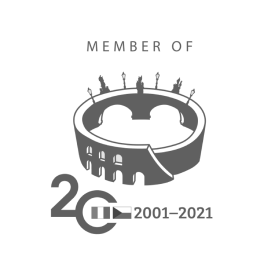
CZECH HOUSING MARKET 2025: GROWTH AND NEW OPPORTUNITIES
In 2025, the real estate market in the Czech Republic is undergoing a significant growth phase, with a steady rise in prices. After a period of slowdown due to high interest rates, housing demand is picking up momentum, creating new opportunities but also challenges for buyers, investors and tenants. This is driven by several factors, including the limited availability of new buildings, the increasing attractiveness of older properties and the expansion of the rental sector managed by large companies.
In this article we analyse the main trends expected for 2025 and their impact on the Czech real estate market. Indeed, rents are expected to grow by 17%, while house prices could rise between 5% and 10%. In Prague, the most expensive city, the average cost per square metre is already very high and could grow even further, although more modestly than in other areas.
Higher demand for older homes
An important phenomenon is the increase in demand for older homes. Due to the scarcity of new construction, many people turn to existing buildings, often more affordable. If interest rates fall, these homes could also experience further price increases.
In fact, if interest rates go down, getting a mortgage becomes cheaper. This drives more people to buy homes, increasing demand. If demand grows, but the supply of new housing remains limited (as in the case of the Czech market), prices will tend to rise.
In the specific case of older houses, many people are already choosing them as an alternative to new constructions, which are scarce. If mortgages become more affordable, even more buyers may turn to these properties, further increasing their prices.
Growth in corporate managed rentals
At the same time, the market for rent managed by large companies and investment funds is increasingly emerging, especially in major cities. In Prague, for example, new luxury micro-apartment complexes are planned, designed for high-income tenants. This sector offers stability and attractive returns for investors, although it requires substantial up-front capital.
The single-family home market remains in difficulty
Despite the general recovery, the single-family home market remains held back by still high mortgage rates, making it difficult for many families to buy a home. The construction of new housing is slowed down, and without a significant reduction in interest rates, this situation could persist.
This is due to high interest rates, which make project financing more expensive for construction companies. In addition, with higher mortgage prices, many people forgo buying a home, reducing demand and further discouraging new construction. This situation has created a shortage of new homes on the market, pushing more and more buyers towards older, often more affordable homes.
Expansion of commercial real estate
Finally, the commercial real estate sector is booming, with growing investments in offices, hotels and multifunctional spaces. The recent sale of the Hilton Hotel in Prague for 7.5 billion crowns demonstrates the attractiveness of this market. The logistics and shopping centre sector also continues to grow thanks to the expansion of e-commerce, while the availability of modern offices is limited, contributing to higher prices.
In conclusion, 2025 will be a year of growth for the Czech real estate market, marked by steady increases in prices and rents, as well as new investment opportunities, especially in luxury rentals and commercial properties. While investors can benefit from stable returns and an expanding market, mortgage difficulties may continue to hamper access to property for many households. The scarcity of new construction, combined with increasing demand for existing housing, could further accelerate price increases, Helping to shape the market over the coming years and making monitoring of economic policies and interest rates even more crucial.
Sources: https://www.expats.cz/




